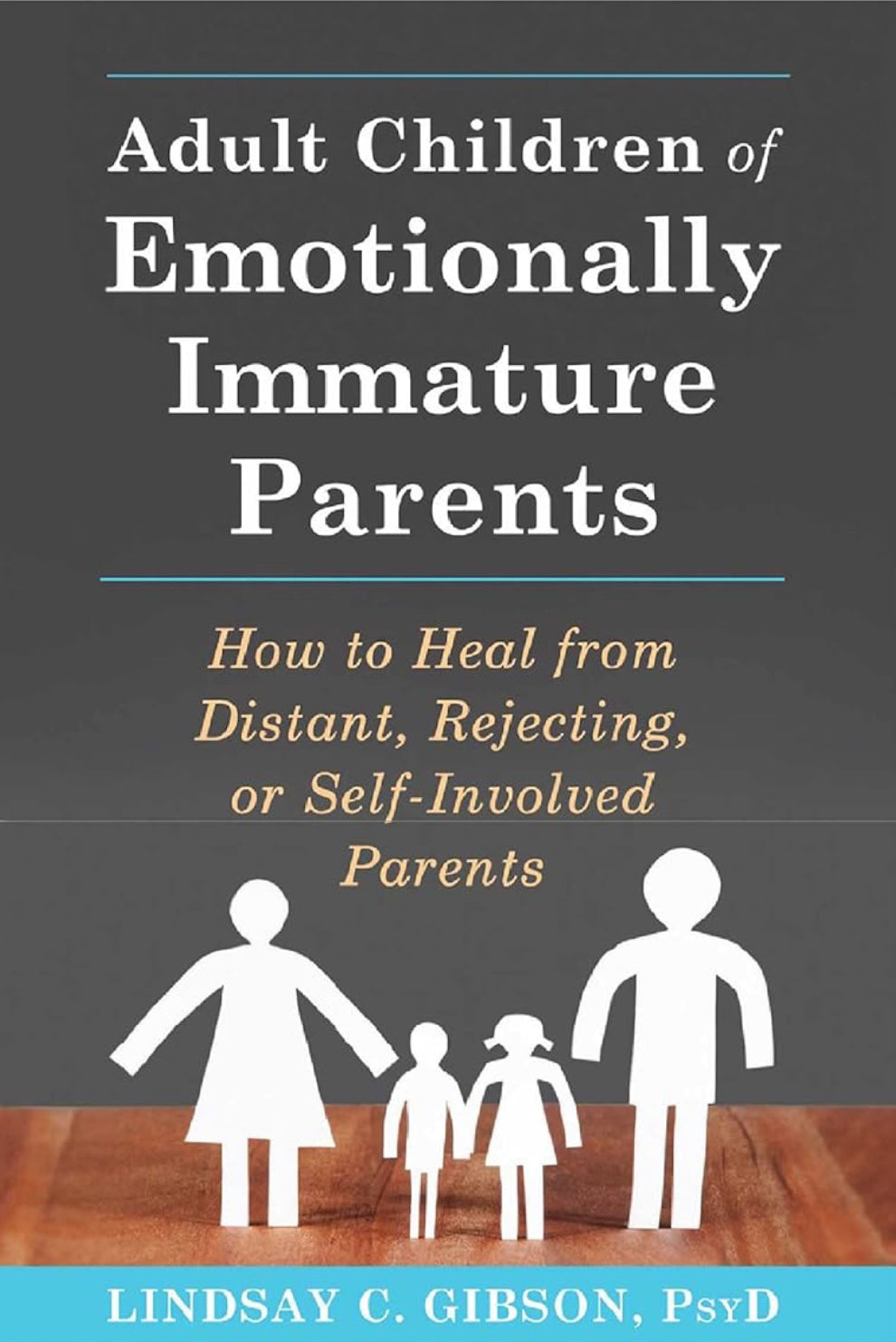Adult Children of Emotionally Immature Parents: How to Heal from Distant, Rejecting, or Self-Involved Parents
Details
Details
- FREE shipping (over AED 100) and FREE bookmarks included (how cool is that?)
- We love rewarding our customers, which is why we offer FREE bookmarks on your frequent orders. Add your product to the cart!
- Order before 5pm** for next day delivery.
Shipping Info
Shipping Info
We use FENIX Express & Quiqup Logistics for most of our deliveries. You can expect your parcel within 1-2 business days from when it leaves our warehouse.
Description
Description
Are you one of the countless people who grew up with emotionally immature parents? If you suffer from this troubling parent/child dynamic, you may still recall painful moments from your childhood when your emotional needs were not met, when your feelings were dismissed, or when you took on adult levels of maturity in an effort to “compensate” for your parents’ behavior. And while you likely cultivated strengths such as self-reliance and independence along the way― strengths that have served you well as an adult―having to be the emotionally mature person in your relationship with your parent is confusing and even damaging.
If you are ready to gain the insight you need to move on from feelings of loneliness and abandonment and find healthy ways to meet your own emotional needs, this book will help light the way. You’ll discover the four main types of emotionally immature parents:
·Emotional parents, who may vacillate between over-involvement and abandonment, leading to frightening instability and unpredictability
·Driven parents, who are often compulsively busy and can’t stop trying to perfect everything, including other people
·Passive parents, who may have a laissez-faire mindset and avoid dealing with anything upsetting
·Rejecting parents, who may withdraw from any relationship with their child, showing either detachment or anger as primary responses
All emotionally immature parents have one defining characteristic in common, even if they differ in style―none of them puts their child’s needs first. This book will show you that you are not to blame for your parent’s behavior. It also offers real skills for handling difficult family situations and moving on from the emotional wounds of your childhood. If you are ready to gain a greater understanding of both your parents and yourself, this book provides a much-needed guide


